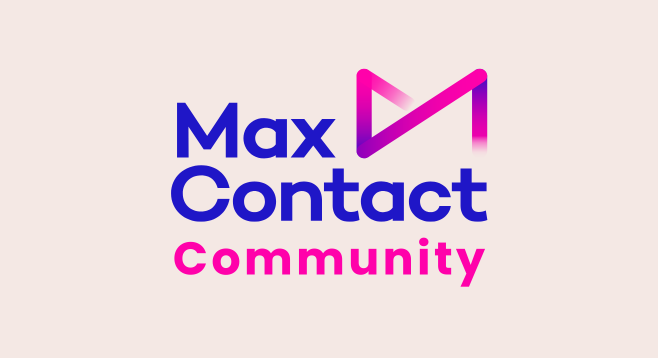One of the simplest and most effective tools in your contact centre armoury is your call centre script. A call centre script is a set of predefined questions, responses and conversation pathways for agents to follow when communicating with customers over the phone.
This helps agents communicate confidently and effectively with customers, no matter how little experience they have. Meanwhile, quick and efficient conversations with positive outcomes for customers lead to more sales and a better brand reputation for your business.
This means it’s crucial to write a call script that demonstrates efficiency, understanding and a real desire to help customers. Not only does this make average handling time (AHT) more efficient and valuable, but also improves customer experience (CX) and makes life considerably easier for stretched employees.
Wondering how to write a call script that gets results? Writing your own call centre script can feel daunting, but in most cases, it’s just about following a few simple rules. Here are six steps to writing an effective call centre script:
1. Keep your call centre script simple
Call centre scripts are all about focus. Only ever try to sell one product or service. Have one goal in mind for the conversation, whether it’s a further call or scheduling a demo.
It’s the same with support and debt collection scripts. Keep the focus on one thing (problem A or payment B). Don’t encourage a wider conversation about customer support or the cost of your product.
Be polite and – if relevant – sympathetic, but get to the core point of the script as quickly as possible. Don’t waste words, and use simple language at all times.
A well-focused script will contain questions and responses directly relevant to the point of the call, with examples of ways to redirect the conversation in case you start to veer off-topic. A cluttered script will include irrelevant offers or unnecessary questions.
For example, with a cold call, you want to cut straight to the chase with a concise opening to introduce yourself and explain your offer.
You could start with something like this: “Good morning, Mr Smith. I’m Dan from ABC. We’ve got an offer on right now that we think you’d be interested in. Is this a good time to talk?”
Be prepared that the likely answer is no and have a response ready that encourages the client to agree to a callback. For example: “No problem at all. When’s a better time to call? It should only take five minutes or so and I’m happy to fit into your schedule.”
2. Introduce yourself
Start every sales call centre script by introducing yourself. It’s important that you build rapport, so use your first name and personalise the conversation by using first-person phrases – “I can”, “I understand”, “I will make sure” and so on.
If you know anything about the customer – do your research beforehand – bring it into the conversation. Be sure to know how to pronounce their name before calling, and use it throughout the conversation in a natural way.
If relevant, mention the company’s latest product, or an earlier conversation a customer had with your company.
If the customer is calling with a problem or complaint, acknowledge their problem, offer an apology and be proactive in taking steps towards a solution, like so: “I’m really sorry that you’ve had this problem. Let me see what I can do to make it right.”
3. Write professionally
That means making sure you don’t make obvious spelling and grammar mistakes. This is important for both phone, webchat and email communications. You should use professional language at all times – “Good morning, Mr Smith” is better than “Hi, Mr Smith” or “Hello, Mr Smith.” On no account say “Yo, Mr Smith”!
If you can’t be bothered getting the details write* in an email, a customer might wonder if you’ll bother to get them right in other areas of your business. A difficult customer may see it as more evidence of a lax attitude to customer service.
Use online tools like Grammarly and Google’s plug-in spell checker to help, but always get someone else to read your scripts for a second opinion.
When you make mistakes in a call centre script, the agent might accidentally say them out loud, or stumble over their words while they self-correct your mistakes.
*You see what we did there, and doesn’t it make the sentence feel unprofessional?
4. Give customers opportunities to talk
A difficult customer may want an opportunity to vent. It’s important that you let them. In general, getting customers talking is good, because it engages them with the conversation. If it’s appropriate, include questions in your call centre script to encourage conversational flow. You can also mark in the script where the agent may want to pause to allow the customer to speak.
If the customer has a problem or complaint, you should direct the agent to repeat the customer’s concern back to them to ensure they understand it correctly, before moving on to a solution. This helps the customer feel heard and validated.
Agents also need to be able to escalate the issue if there’s nothing they can do to calm the customer down or the conversation is becoming confrontational.
In this instance, you should include an escalation prompt such as “I’m sorry that you’re not happy with this conversation. Would you like to speak to my superior?”
5. Ensure your call centre script is compliant
Always write a call centre script with compliance in mind. Check your industry’s compliance rules before you put pen to paper or finger to keyboard. This includes rules on collecting data from customers, recording calls for training and monitoring purposes, or the inclusion of specific legal statements and disclosures.
If your customer is signing a contract or agreeing to a sale, you may need your agents to read out specific rights or terms and conditions, so don’t forget to include these in your call script.
Double-checking everything from a regulatory standpoint paves the way for a watertight call centre script that ensures your agents stay compliant.
6. Consider every call centre script a work in progress
A call centre script isn’t a one-off, it’s a work in progress. Refine it over time using feedback from advisors and evidence from call recordings.
What works, and what doesn’t? Are customers ever confused? Do conversations feel too rushed? Tweak your scripts accordingly. The best way to do this is with a call centre script editor that includes reporting and analytics with simple tools to help you make the tweaks efficiently.
The MaxContact call centre scripting tool lets you add questions, create branching paths, and integrate third-party data, in real-time and in just a couple of clicks. It also lets you present your teams with useful in-the-moment information on one screen, so they don’t have to jump between multiple windows.
This helps your agents stay adaptable to your client’s needs as the conversation progresses.
Why writing call centre scripts can be a challenge
There are lots of reasons why you might struggle to write a call centre script. Some of the common challenges include:
- Sounding natural and not robotic: It can be hard to write pre-defined prompts and responses in a way that feels light and conversational.
- Adapting to different personalities: A traditional call centre script is often too static, making it difficult for agents to adapt to different types of customers and unexpected situations.
- Keeping information concise: Staying on topic can be tough when you can’t control what the customer will say. A clever call centre script is one that includes subtle ways to redirect the conversation as needed.
- Creating scripts that react to emotional responses: There’s no way of knowing exactly how your customers might react in any given situation. This means you need an emotionally sympathetic call centre script paired with effective training to help agents deal with heightened situations.
How to write a script with call centre scripting tools
If you struggle with any of the above challenges when writing your call centre script, you could benefit from the MaxContact call centre scripting tool. It helps you:
- Create easy-to-digest conversations that flow: With top tips for writing call centre scripts, templates, and a drag-and-drop editor, you can make and edit conversations that agents can see at a glance, helping them adapt and respond rapidly in the moment.
- Demonstrate empathy and understanding: Our call centre scripting tool can be edited on the fly, and features a straightforward presentation of multiple pathways to help agents respond to a range of emotional responses.
- Quickly get to the heart of customer challenges: Data validation and customer checks can be built into scripts to streamline conversations and save time and resources.
- Helps you deal with difficult customers: Our latest ebook is filled with scripting templates to help you deal with difficult customers.
Put simply, good scripts work. They lead to higher sales, better service and easier debt collection. They also create trust and build rapport.
MaxContact’s powerful call centre scripting tool helps you write, edit and refine great scripts, as part of our wider customer engagement solution. It means your teams always have the right messaging to hand, can counter objections naturally and have the information they need to double down on your best features and benefits.
Find out more here, or download our free call centre scripting e-book, filled with helpful tips and templates.





